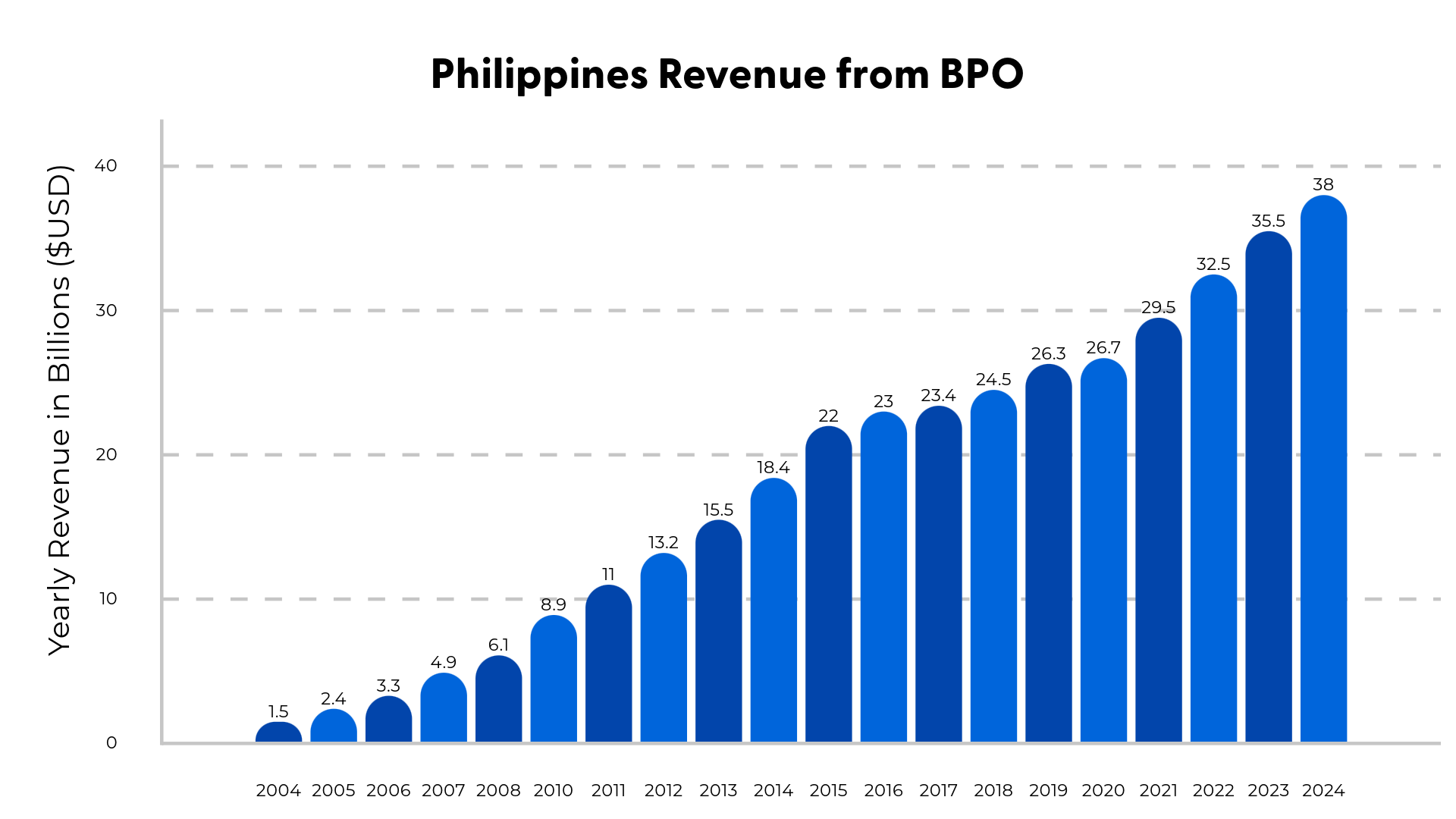A Game-Changer for the Country's Job Creation and Economic Growth Goals
Uganda has taken a significant step towards becoming a global player in the Business Process Outsourcing (BPO) industry with the launch of its new BPO policy. This initiative aims to create 150,000 jobs by 2030, an ambitious yet strategic move that signals the country’s determination to leverage the vast opportunities in the outsourcing sector. As the global BPO market continues to expand, this new policy could serve as a catalyst for economic transformation in Uganda, addressing unemployment while positioning the country as a competitive outsourcing destination in Africa.

The Growing Importance of Business Process Outsourcing
Business Process Outsourcing (BPO) has become a crucial sector in many economies worldwide, providing cost-effective solutions for companies looking to outsource non-core business functions. Services such as customer support, data processing, IT services, CAD, and financial management have increasingly been contracted to third-party providers, particularly in regions with skilled labor and lower operational costs. Countries like India and the Philippines have long dominated this sector, but Africa—particularly Uganda—is now emerging as a promising destination.
The rise of the digital economy and the increased need for remote work have further accelerated the demand for BPO services. Companies are looking for reliable partners who can handle tasks efficiently while reducing costs. Uganda, with its young, tech-savvy population and improving infrastructure, is well-positioned to tap into this demand.

In the early days of Global BPO, the Philippines was in a very similar situation to Uganda. Over the past two decades, the BPO sector in the Philippines has grown to become one of the country’s top economic drivers, contributing nearly 8% of the nation’s GDP. The industry has provided millions of jobs, lifted thousands out of poverty, and positioned the Philippines as a global outsourcing hub. The key to its success has been a strong English-speaking workforce, government incentives, a focus on technical education, and continuous investment in digital infrastructure. Uganda can draw valuable lessons from the Philippines by focusing on language proficiency, workforce training, and creating a business-friendly environment that attracts international companies. If implemented effectively, Uganda’s BPO sector has the potential to follow a similar growth trajectory, significantly boosting employment and economic output.
What Uganda’s BPO Policy Aims to Achieve
At the heart of Uganda’s BPO policy is job creation. Unemployment, particularly among the youth, has been a long-standing challenge in the country. The new policy is designed to equip young people with the necessary skills to secure jobs in the digital economy. By creating 150,000 jobs by 2030, Uganda hopes to reduce youth unemployment rates significantly while fostering an industry that could generate substantial foreign revenue.
Beyond job creation, the policy seeks to establish Uganda as a hub for outsourcing services in Africa. The government aims to attract international companies by offering competitive incentives, improving digital infrastructure, and enhancing the skill set of its workforce. To achieve this, partnerships between the government, private sector, and educational institutions are being prioritized. The goal is to create a robust training ecosystem that prepares Ugandans for careers in BPO.
Infrastructure development is another key focus and byproduct of focusing on BPO expansion. Reliable internet connectivity, stable power supply, and modern office spaces are essential for a thriving BPO sector. Recognizing this, the Ugandan government is working on expanding broadband coverage, reducing internet costs, and encouraging investment in data centers. These efforts are expected to make Uganda more attractive to global clients looking for outsourcing partners, and will also better the infrastructure for current and future Ugandan local business.
Uganda’s Potential
Uganda’s strengths give it a competitive edge in the BPO sector. One of its most significant advantages is its youthful workforce. With a median age of just 16.7 years, Uganda has one of the youngest populations in the world. This presents an enormous opportunity to train and develop a highly skilled BPO workforce. Additionally, English is widely spoken in Uganda, which makes it an ideal location for serving English-speaking markets, particularly in North America, Europe, and other parts of Africa.
Moreover, Uganda’s strategic location in East Africa places it in a favorable time zone to serve clients across different continents. Its proximity to other growing African economies also makes it an attractive gateway for companies looking to expand their outsourcing operations on the continent. Coupled with relatively lower labor costs compared to Western countries, Uganda’s potential as a BPO hub is increasingly evident.
Challenges on the Road Ahead
Despite its promising potential, Uganda faces some potential challenges that must be addressed to realize the full benefits of its BPO policy. One of the primary concerns is digital infrastructure. While progress has been made in improving internet access and speed, more investment is needed to ensure that all BPO firms operate efficiently without connectivity issues. High electricity costs and occasional power outages also pose challenges that need long-term solutions. If these issues aren’t solved the BPO industry will struggle to gain traction in Uganda, and may lead to a reputation of unreliability in the industry.
Another hurdle is the need for specialized training. While Uganda has a large pool of educated youth, many lack the technical skills required for high-value BPO roles, such as IT services and advanced data analysis. The success of the policy will largely depend on how well the country can equip its workforce with the necessary skills. Government-led training initiatives, collaboration with universities, and partnerships with established BPO firms could help bridge this gap.
Moreover, competition from established BPO giants like India, the Philippines, and emerging African players such as Kenya and South Africa means Uganda will need to differentiate itself. Competitive pricing, exceptional service quality, and strong data security measures will be crucial in attracting international clients to this new industry in Uganda.
The Future of BPO in Uganda

Uganda’s BPO policy represents a significant step forward for the country’s economic future. If successfully implemented, it could transform Uganda into a leading outsourcing destination, providing thousands of young people with employment opportunities and driving economic growth. The global BPO market is only expected to grow, and Uganda’s efforts to carve out a share of this industry could pay off in the coming years.
For businesses, Uganda offers an opportunity to access cost-effective outsourcing services while contributing to the country’s development. For young Ugandans, the policy signals hope for new career paths in the digital economy. As the policy unfolds, all eyes will be on Uganda to see how well it navigates the challenges and capitalizes on the opportunities in the BPO sector. The next few years will be crucial in determining whether Uganda can successfully position itself as Africa’s next BPO powerhouse, or if the arising challenges will prove to be too much for the growing country to handle.
With the right investments, training programs, and government support, the country has a strong chance of achieving its ambitious goal of 150,000 jobs by 2030—and perhaps even surpassing it.
Photos courtesy of the Ministry of ICT & NG: https://x.com/MoICT_Ug/status/1892585010898878750




Leave a Comment